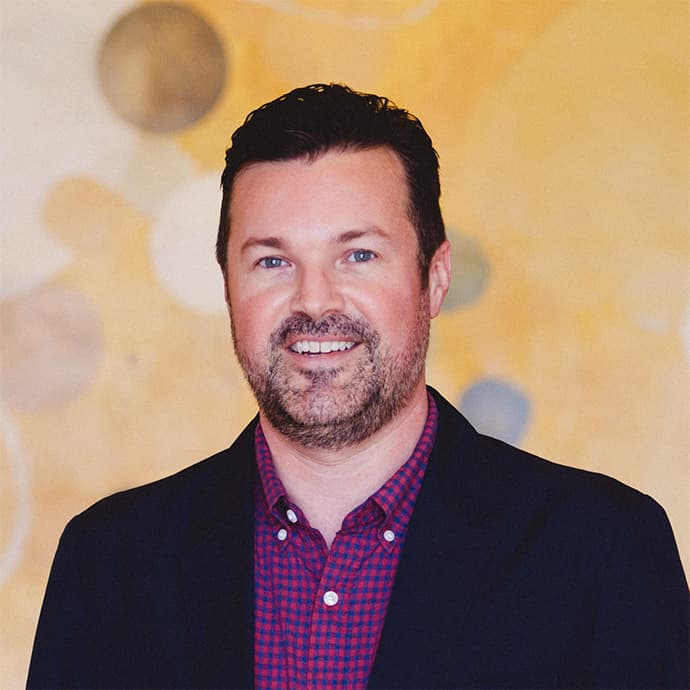Partial Hospitalization Programs (PHPs) for Drug and Alcohol Addiction Treatment



Stacy Mosel is a licensed social worker, psychotherapist, and substance abuse specialist. After receiving a Bachelor's degree in Music from the State University of New York at Stony Brook, she continued her studies at New York University, earning a Master's of Social Work degree in 2002.

Dr. Scot Thomas received his medical degree from the University of California, San Diego School of Medicine. During his medical studies, Dr. Thomas saw firsthand the multitude of lives impacted by struggles with substance abuse and addiction, motivating him to seek a clinical psychiatry preceptorship at the San Diego VA Hospital’s Inpatient Alcohol and Drug Treatment Program.




Stacy Mosel is a licensed social worker, psychotherapist, and substance abuse specialist. After receiving a Bachelor's degree in Music from the State University of New York at Stony Brook, she continued her studies at New York University, earning a Master's of Social Work degree in 2002.

Dr. Scot Thomas received his medical degree from the University of California, San Diego School of Medicine. During his medical studies, Dr. Thomas saw firsthand the multitude of lives impacted by struggles with substance abuse and addiction, motivating him to seek a clinical psychiatry preceptorship at the San Diego VA Hospital’s Inpatient Alcohol and Drug Treatment Program.
Dealing with drug and alcohol addiction isn’t easy, both for the person who uses substances as well as those who know and love them. Different levels of outpatient care, including one known as a partial hospitalization program (PHP), have helped many people begin their recovery from substance use disorder (SUD).1 PHPs are a step on the path to recovery, which can include a continuum of different levels of care options, depending on an individual’s treatment needs.2
Finding the right PHP addiction treatment can help individuals find peace of mind and support their recovery efforts. This article will help you understand what PHPs are, what to expect in a PHP, and what happens after someone completes PHP treatment. It will also provide an overview on insurance coverage for PHP rehab and discuss how you can find PHP treatment near you.
What Is a Partial Hospitalization Program (PHP)?
A partial hospitalization program is the most intensive level of outpatient treatment. PHP provides rehab services to people who require a highly supportive level of care.1,2 When appropriate, it can serve as an alternative to inpatient and residential treatment in that it provides access to a similar range of relatively intensive recovery services but allows those who need daily monitoring and management to return to their home or other sober living environment outside of treatment hours.1,2
People who may be good candidates for a PHP include those who have significant medical or co-occurring mental health conditions like bipolar disorder or depression, but have relatively stable home environments, reliable transportation, and a sufficient level of social support.1,2
Alternately referred to as day treatment programs or high-intensity outpatient programs (HIOP), partial hospitalization programs represent the most intensive level of outpatient treatment—falling between inpatient care and traditional outpatient treatment in terms of treatment intensity according to the American Society of Addiction Medicine (ASAM).2 The full ASAM continuum of care includes:2
- Level 1 – Traditional outpatient services, which involve less than 9 hours a week of treatment.
- Level 2.1 – Intensive outpatient programs (IOPs), which involve between 9 to 19 hours of treatment services and structured programming per week.
- Level 2.5 – High-intensity outpatient or partial hospitalization programs, which involve 20 or more hours of structured programming and treatment per week for people who do not require 24-hour care.
- Level 3 – Inpatient and residential services.
- Level 4 – Medically managed intensive inpatient services.
People have different needs, and these needs can change as an individual progresses in their recovery, which means that people can transition between different levels of care.3 PHPs can serve as a starting point in addiction treatment or a continuation of care.2 For example, a PHP rehab for drug or alcohol addiction can be used as a step-down form of care following inpatient or residential treatment, a step-up from an IOP or other less intensive form of outpatient care, or as the entry point to treatment for some individuals.2,4
The most appropriate level of care can be best determined with the help of a doctor or addiction specialist. Ideally, before starting treatment, patients will undergo a comprehensive evaluation to help determine the severity of their SUD, any other mental or medical diagnoses that require treatment attention, as well as other recovery needs to help formulate an individualized treatment plan and the most suitable level of care.1,2 A person’s specific treatment plan can vary depending on the substance they use, their unique needs, and the facility that they attend.3
According to the Substance Abuse and Mental Health Services Administration (SAMHSA), treatment outcomes in intensive outpatient programs, which include PHPs, are comparable to inpatient treatment but at nearly half the cost.4 However, it’s important to note that not all treatment centers offer PHPs.
What Happens During a PHP?
If you’re considering a partial hospitalization program, you might be wondering what happens in PHP rehab.
When appropriate, a person may begin their treatment program with medically supervised detox on an outpatient basis, to help them safely and comfortably manage their withdrawal symptoms at the start of recovery.1 Detox can take place in a separate detox program or in the PHP itself, although PHPs that offer detox services generally treat people with mild-to-moderate withdrawal symptoms and will refer someone who requires a higher level of care to the appropriate detox setting.1,5
The individual can then expect to receive a variety of services and participate in different interventions and therapies during their PHP program. This can include:
- Medication management. Those recovering from alcohol or opioid addiction may continue to receive medication to help support their recovery.1,2 Medications may help decrease cravings, block the rewarding effects of alcohol or opioid drugs, and help a person abstain from substance use.1,6
- Medical services. A person may receive care, such as tuberculosis or HIV testing, screening, and attention to women’s health issues, from doctors, nurses, or other medical staff as necessary.1
- Individual counseling. People will visit with a therapist to work on their unique issues, concerns, and goals.4 Therapy sessions usually take place once a week or as needed.4
- Group counseling. Groups are a common treatment modality, where people will work with others in different types of therapist-led groups.4 This can include psychoeducation, skills sessions, and process groups.4 Group counseling often takes place most days of the week during treatment.4
- Family counseling and services. People may participate in couples or family counseling to help work on necessary issues, and families may also receive psychoeducation to help them understand addiction.4
- Treatment for co-occurring disorders. A co-occurring disorder refers to the presence of a mental health condition, such as depression or anxiety, and a substance use disorder at the same time.2,7 People with co-occurring disorders should receive integrated treatment that addresses both conditions.7 Treating both conditions can help ensure that one condition doesn’t interfere with or complicate the treatment of the other and is an important component of successful recovery.7
In general, people attend a PHP most days of the week for 4 to 8 hours per day, and can then leave the program and return home.1 This differs from other levels of care, including more traditional outpatient appointments, which may only require attending treatment 1 to 3 times per week in the evenings or weekends, or residential treatment, where a person lives onsite at a rehab for the duration of treatment.7 As with other forms of treatment, the exact duration of a PHP can vary depending on a person’s needs but may last 3 or more months.1
What Happens After Partial Hospitalization Rehab?
Recovery is a lifelong process, which is why it’s important to have an aftercare plan in place following treatment at a PHP rehab for drugs or alcohol.1 Aftercare, also known as continuing care, helps to provide continued recovery support after an initial period of more structured treatment has ended.3 Following PHP treatment and depending on their needs, people may participate in different types of aftercare, such as:
- Stepping-down to other levels of treatment, which includes standard outpatient or intensive outpatient programs.4
- Participating in ongoing individual, couples, family, or group counseling.8
- Participating in behavioral therapies, such as cognitive behavioral therapy, which can help people identify and manage situations that may trigger relapse.9
- Living in a sober living home.1
- Participating in a 12-Step program or other support groups.1
- Ongoing medication management.1
- Maintaining regular phone or technology-based contact with the rehab.8
Does Health Insurance Cover PHP Addiction Treatment?
Health insurance may cover at least part of the cost of a partial hospitalization program.9 Every insurance plan is different, but health insurance providers are required to offer some level of coverage for addiction treatment since it is considered an essential health benefit under the Affordable Care Act.9 Insurance companies also generally have to cover mental health and substance abuse treatment in a way that is similar to their coverage of medical and surgical care.9
Get Help For Yourself or A Loved One Today
Text: Recovery may seem daunting, but effective help is available. Explore residential drug rehabs or specialized alcohol addiction treatment programs to find the right environment for healing. Use our free tool to search for addiction treatment by insurance, location, and amenities now.
FAQs
-
Center for Substance Abuse Treatment. (2014). What is substance abuse treatment? A booklet for families. HHS publication no. (SMA) 14-4126. Rockville, MD: Substance Abuse and Mental Health Services Administration. https://store.samhsa.gov/sites/default/files/sma14-4126.pdf
-
National Institute on Drug Abuse. (2014). Principles of drug addiction treatment: a research-based guide (third edition). https://nida.nih.gov/sites/default/files/podat-3rdEd-508.pdf
-
Substance Abuse and Mental Health Services Administration. (2021). Clinical issues in intensive outpatient treatment for substance use disorders. Advisory, 1-9. https://store.samhsa.gov/sites/default/files/pep20-02-01-021.pdf
-
Center for Substance Abuse Treatment. (2015). Detoxification and substance abuse treatment. Treatment Improvement Protocol (TIP) Series, No. 45. HHS Publication No. (SMA) 15-4131. Rockville, MD: Center for Substance Abuse Treatment. https://store.samhsa.gov/sites/default/files/d7/priv/sma15-4131.pdf
-
Substance Abuse and Mental Health Services Administration. (2024, March 28). Medications, counseling, and related conditions. https://www.samhsa.gov/medications-substance-use-disorders/medications-counseling-related-conditions
-
Substance Abuse and Mental Health Services Administration. (n.d.). What to expect: treatment options. https://findtreatment.gov/what-to-expect/treatment
-
McKay, J. R. (2021). Impact of continuing care on recovery from substance use disorder. Alcohol research: current reviews, 41(1), 01. https://www.ncbi.nlm.nih.gov/pmc/articles/PMC7813220/
-
Menon, J., & Kandasamy, A. (2018). Relapse prevention. Indian journal of psychiatry, 60 (Suppl 4), S473–S478. https://www.ncbi.nlm.nih.gov/pmc/articles/PMC5844157/
-
Healthcare.gov. (n.d.). Mental health & substance abuse coverage. https://www.healthcare.gov/coverage/mental-health-substance-abuse-coverage/
Our Promise
How Is Recovery.com Different?
We believe everyone deserves access to accurate, unbiased information about mental health and recovery. That’s why we have a comprehensive set of treatment providers and don't charge for inclusion. Any center that meets our criteria can list for free. We do not and have never accepted fees for referring someone to a particular center. Providers who advertise with us must be verified by our Research Team and we clearly mark their status as advertisers.
Our goal is to help you choose the best path for your recovery. That begins with information you can trust.












